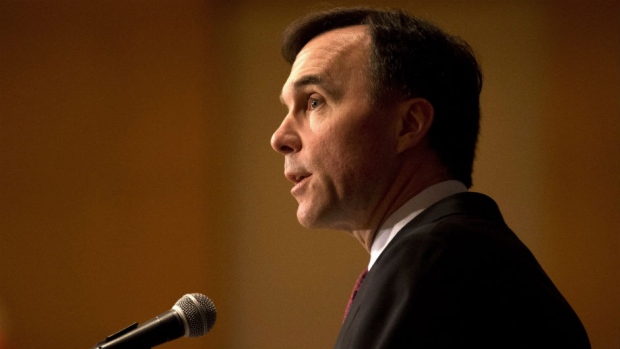Jun 23, 2016
The US$6B investment Canada has at risk in the Brexit vote

The British pound plunged nearly 12 per cent against the U.S. dollar over a six-hour period starting at 5:50 p.m. ET on Thursday as it became clear U.K. residents were voting to leave the European Union.
Assuming Canada hadn’t touched the US$6.14 billion worth of British pounds held in reserves as of the end of May, the value of this country’s investment dropped to roughly US$5.4 billion, representing a peak loss of US$704million.
With the British currency holding near a five-month high in the days leading up to Thursday’s U.K.-wide referendum on the question of remaining in or leaving the EU, federal Finance Minister Bill Morneau indicated that he would not be taking action based on any short-term volatility.
“As we manage our reserves in Canada, we have a long-term perspective on those reserves,” Morneau said in response to questioning from BNN on Thursday. “So as we look at volatility or periodic flows, we look out to the long-term, and don’t believe this is an issue of concern.”
Investors and financial experts have long warned the pound would likely decline in value quickly and significantly if the vote resulted in favour of the U.K. leaving the EU. George Soros, famed for successfully betting against the British pound in 1992, said earlier this week the downside currency risk was far greater this time around.
“I would expect this devaluation to be bigger and also more disruptive than the 15 per cent devaluation that occurred in September 1992,” Soros wrote in an op-ed for the British Guardian newspaper.
“The value of the pound would decline precipitously [and] it would also have an immediate and dramatic impact on financial markets, investment, prices and jobs.”
